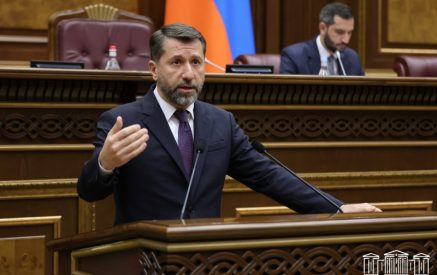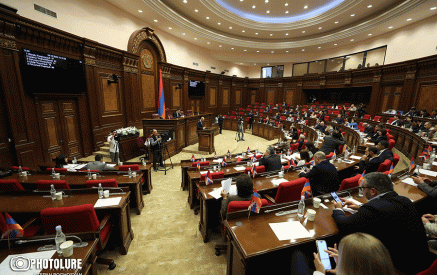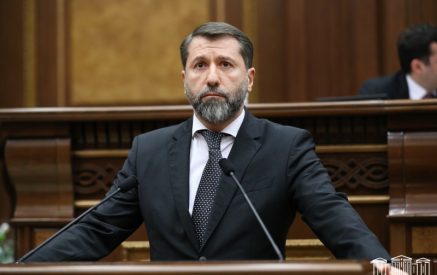Though many law violations by investigation and preliminary investigation bodies have been revealed and processed as a result of prosecutorial control including cases relating to records on crimes, their registration, record keeping and the process itself, however, the complaints addressed to the Ombudsman evidence that there were significant contradictions in the explanation materials given to citizens, and in some cases the investigation and preliminary investigation bodies have made decisions “on proceeding rejection of criminal cases by the materials”. Such kind of violations of the rights and interests of citizens by the investigation and preliminary investigation bodies mainly took place as a result of a non proper control by the Prosecution over the investigation and preliminary investigation, when disputable or illegal decisions have not been eliminated.
And again as a result of non proper control over the investigation and preliminary investigation there exist many cases when the investigation and preliminary investigation bodies have violated the 10 days time period – prescribed by Article 180 of the RA Criminal Procedural Code – of consideration of reports on crimes. Actually, the problem is a result of an unrealistic legislative regulation, about which evidences the Prosecution’s reply to the Ombudsman, where it is mentioned that the prescribed by law 10 days time period is not usually sufficient for revealing the grounds of criminal case proceedings.
In many cases, as a result of non sufficient control by the Prosecutor’s Office, the period prescribed by the Criminal Procedural Code was not kept towards detainees in the RA Police Detention Facilities (hereinafter – detention facilities).
Though the order of discussing complaints in the Prosecution is regulated by N59 order “About approving the order of the prosecutor’s office of the Republic of Armenia” of the RA Prosecutor General, made on 20.06.2008, and according to point 224 of the order it is forbidden to send the application for discussion to a state or local government body or an official, whose decision or activity (inactivity) is in the process of appealing, nevertheless, in certain cases citizens, complaining of an investigator’s activities, guided by the Article 290 of the Criminal Procedural Code, applied to the Higher Prosecutor and the latter in order to solve the further process of the application submitted it to the investigator, whose actions are challenged. As a result of such actions, citizens’ right to appeal that is- the right to effective legal protection was violated.
Read also
Though the legislative process of responding to possible cases of violence and torture in places of detention or penitentiaries is strictly regulated in the RA Prosecution system, however, according to citizens the Prosecutor’s Office not in all cases was informed or effectively intervened.
The court and the legislative body did not sufficiently ensured the parties’ equality- the principle of competetion- at the trial stage. The results of monitoring carried out by human rights organizations evidence that the prosecutor while implementing its activities at the trial stage has advantages over the other party, which leads to an inequality of the trial parties. In such cases the right to a fair trial is violated.
A worrying fact is that the Prosecutor’s Office, generally, while solving the issue of precautionary measures, prefers submitting detention request to the court, whereas detention should be observed as an exclusive preventive measure and be applied in case when it is impossible to ensure the accused proper behavior in the course of proceedings by means of other preventive measures prescribed by the RA Criminal Procedural Code. In practice “Personal guarantee” and “Organization guarantee” preventive measures almost were not applied. At the same time the most effective alternative preventive measures are not prescribed by the RA Criminal Procedural Code.
The RA Prosecutor’s Office, in the scope of its authorities, carries out control over application of Article 190 (“Subordination of Investigation”) of the RA Criminal Procedural Code. The controlling prosecutor should take measures to except the cases of violations of subordination of investigations transferring those cases to appropriate preliminary investigation bodies to be investigated accordingly. Some local and international human rights organizations and experts expressed their negative opinion on this function of Prosecutor’s Office, who think that subjective approaches should be minimized; the approaches and standards, which are applied while deciding the matter of subordination of investigation of criminal cases, should be clearly defined.
Despite of some favorable amendments and more effective and transparent implementation of works, however, there were complaints regarding the RA Military Prosecutor’s Office in the course of the year. In particular, complaints of parents and relatives of military servicemen -died or killed during military service in RA Armed Forces, related to non comprehensive, non complete and non objective preliminary investigation by the preliminary investigation body –in the result of no proper control carried out by the RA Military Prosecutor’s Office. Such kind of complaints mainly referred to crimes committed before 2011.
In the anti-corruption strategy program framework, prescribed by the RA decision N1272, 08.10.2009 “About Establishing the Program of Events of the RA Anti-corruption Strategy Implementation during 2009-2012”, the RA General Prosecutor’s Office took some measures in the sphere of prevention of corruption in the respect of elimination of gaps in legislative and law enforcement practices and also other issues. Nevertheless, the main conditions promoting to the reduction of corruption are social conditions, in the context of which legislative settings regarding salaries of prosecutors should be reconsidered – possibly increasing them and making independent from the executive body’s discretion.
The RA Prosecutor’s Office ensured to a maximum degree transparency and publicity of its activities, the evidence of which is presentation of its daily activities on the website. According to published monitoring results in 2011, conducted by “Freedom of Expression Committee” NGO, the Prosecutor’s web page was considered the most transparent one in terms of accessibility of information. Besides, the RA General Prosecutor’s Office received a letter of thanks from “Freedom of Information Center” NGO for promoting freedom and publicity of information in Armenia.
Karen Andreasyan,
Human Rights Defender of the Republic of Armenia

























































